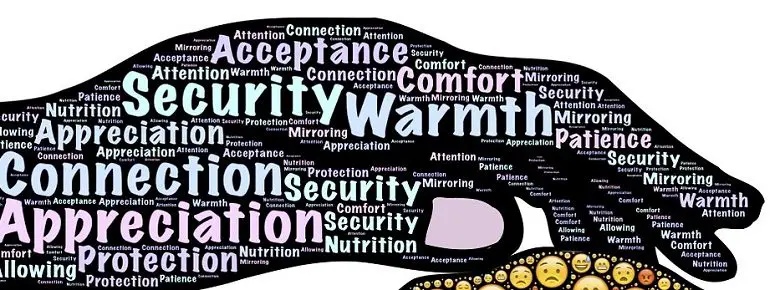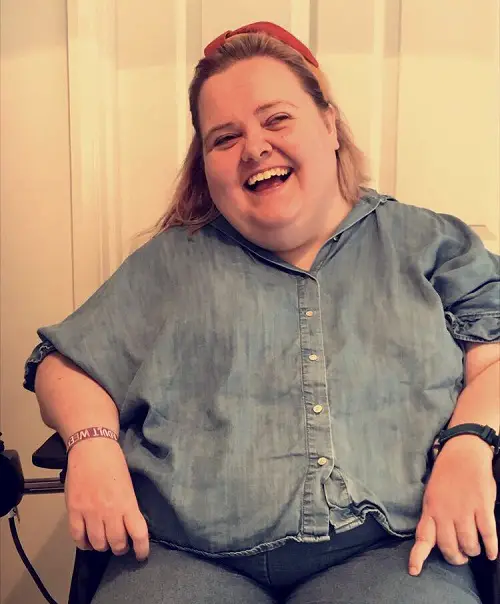
Accepting your disability and living your life
Disabled or not, we’re all susceptible to feeling emotionally low, self-conscious and suffering from anxiety. But if you have a disability, it can be harder to accept what life has thrown at you. We hear from Rebecca, who struggled to come to terms with having a disability, but has used philosophy, psychology and counselling, to believe in her self-worth and to help others do so, too.
My name is Rebecca Sherwood, I’m 29 years old and I have Athetoid Cerebral Palsy, which affects both my legs and my arms. As a result, I use an electric wheelchair and need help with all aspects of my personal care. I have assistants who support me in everyday life and also with my studies.
Although I have quite complex physical needs, I am able to be relatively independent and have developed a strong sense of self-awareness. However, this has not always been the case, as I used to experience great social anxiety and was painfully shy.
Living in an inaccessible world
I have had a curiosity about the world from a young age, and have always been keen to learn. But at school, I wasn’t always able to reach my full potential because there weren’t the right adaptations in place. Perhaps that wasn’t helped by me not exercising my rights enough at the time.
This motivated me to want to pursue higher education in a place that was inclusive, where I could push myself to my full potential. I have now achieved a Diploma in Counselling and am a fully qualified counsellor. I also have two Undergraduate Certificates in Philosophy and I am currently half way through an Advanced Diploma in Philosophy.
Using philosophy and education
I believe that Philosophy changed my perspective on my disability. I was able to rationalise my situation and place in the world, and began to value my life. For me, studying gave me the opportunity to re-evaluate the pain and frustration that I felt at the time. Philosophy allowed me to understand disability as a social construct, and that there really is no ‘norm’ that everyone adheres to.
This is why I have chosen to focus my upcoming dissertation on the social model of disability, which aims to break down the stigma surrounding disability barriers. I hope to inspire ideas that will help to change the way in which disabled people are currently marginalised in society and to create a more inclusive vision of accessibility.
For anyone who has had negative experiences with the educational system, but feels they want to begin studying again, I would recommend the free course Disability and a Good Life: Working With Disability on Futurelearn.com. Futurelearn is a great place to begin to engage with ideas, and the disability course teaches you about human rights and how everyone can have a fulfilling life.

Psychology and counselling
As well as studying, I believe that counselling is another way in which I have been able to accept my disability. I have been fortunate enough to experience both sides of counselling, having attended counselling sessions when I was quite young, and also through becoming a counsellor myself more recently.
The self is an in-depth concept. Part of accepting and actually liking who you are comes from understanding your emotions and feeling comfortable about opening up in a safe environment. My experiences of counselling taught me that there are people who will look beyond my disability and listen to what I have to contribute.
This helped me to find my own voice and speak up for others with disabilities, which is something that I didn’t do enough of in my younger years. Having realised that a counsellor is a facilitator for change, and seeing the sheer impact it can have on an individual’s life, I was inspired to enable others to build a stronger voice for themselves too.
Helping other disabled people
For this reason, I chose to specialise in counselling clients with physical disabilities, as I am able to relate to this process of self-realisation and improving self-worth. I want to prevent people from feeling as low as I once felt myself, and create contentedness within the self, which is an ongoing process to maintain.
I hope that the fact that I am in a wheelchair myself enables me to offer real insights that a non-disabled counsellor might not be able to offer. There are no access barriers in counselling, disability is irrelevant to whether or not you become a good counsellor, or whether a client fully benefits.
There are many ways in which to consider the big questions in life, but I found meaning through philosophy, psychology and counselling. These subjects all challenged me to confront disability from all angles.
Firstly, philosophy has taught me that disability is an abstract concept; I am disabled by society, not by my cerebral palsy, as everyone requires different adaptations in some way whether disabled or able-bodied.
Secondly, psychology helped me to make sense of my own behaviour and thought processes, which liberated me and helped me to change my negative emotions.
Finally, counselling reinforces the importance of communication and breaks down the taboo surrounding disability, because mental well-being is as important as physical well-being. This isn’t to say being disabled isn’t extremely challenging, but learning, conversing and considering meaning helps us to find purpose and create positive change.
By Rebecca Sherwood
Get in touch by messaging us on Facebook, tweeting us @DHorizons, emailing us at editor@disabilityhorizons.com or leaving your comments below.
https://disabilityhorizonscom.onyx-sites.io/2017/08/three-disabled-people-who-will-not-let-themselves-be-limited/
https://disabilityhorizonscom.onyx-sites.io/2017/05/the-cost-of-being-disabled/
One Comment